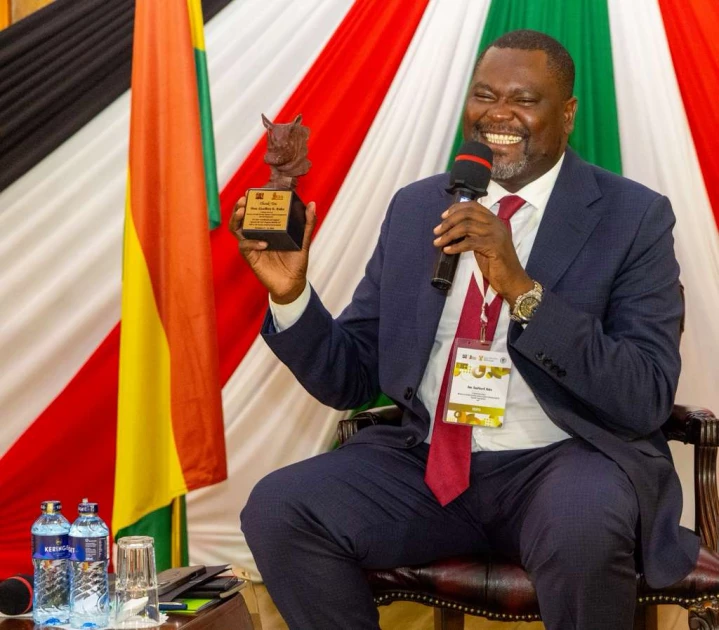CS Ruku calls for redefinition of public service to transform Africa

Public Service, Human Capital Development and Special Programmes CS Geoffrey Ruku. PHOTO | COURTESY

Audio By Vocalize
Speaking during the opening of the Economic Governance Programme Module III at the Kenya School of Government (KSG), Lower Kabete in Nairobi, Ruku said Africa’s prosperity depends on effective governance, innovation, and ethical leadership.
The forum jointly organized by KSG, the National School of Government (South Africa), and the Ghana Institute of Management and Public Administration (GIMPA) brought together senior public sector executives from across the continent to deliberate on strategies for sustainable economic management and public service excellence.
The CS noted that Africa's economies had potential but were pulled back by challenges, citing unsustainable debt levels, weak domestic revenue mobilization, climate shocks, and global economic disruptions.
“Effective economic governance anchored in transparency, accountability, and sound financial management is not optional, it is essential,” he stated.
Ruku emphasized that public service allows government to translate policy visions into tangible outcomes and it has been reflected in the capacity and dedication of its public servants.
“No government, however visionary, can deliver on its promises without a well-trained and confident public workforce. Public officers are the bridge between policy and implementation, turning ideas into real improvements in people’s lives,”
He described the public service as the engine of economic management and called for strong financial discipline, transparent procurement systems, and prudent use of public resources.
Fiscal stability and efficient resource management, he added, are key drivers of economic growth.
The CS therefore urged governments to harness technology to improve efficiency and service delivery, praising the Kenya School of Government’s Artificial Intelligence Hub as a testament to Kenya’s commitment to leveraging technology to strengthen governance systems.
“The future of governance is digital. Public institutions must become catalysts for innovation, where technology enhances transparency, accountability, and citizen engagement,” he said.
Ruku explained that the Economic Governance Programme seeks to equip political and executive leaders from Kenya, Ghana, and South Africa with the skills to address emerging socio-economic challenges.
The initiative also aims to promote ethical leadership, strengthen intergovernmental collaboration, and build a shared vision for Africa’s development.
“This programme is more than just training. It is a strategic investment in leadership and systems that will drive Africa’s transformation and promote responsible governance across the continent,” he remarked.
The CS challenged public servants to embody integrity, innovation, and service, noting that transformation will be achieved by people-centred administration.


Leave a Comment